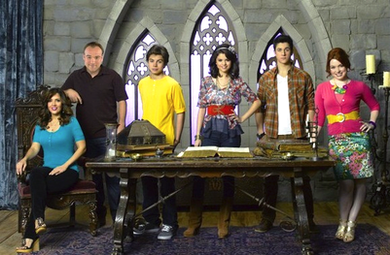There comes a time when it’s too late to tell people how you feel.
There will come a day when the person you mean to talk to won’t be there. Don’t wait for that day.
“There’s always tomorrow” isn’t always true.
The no-pants guide to spending, saving, and thriving in the real world.
Selena Gomez is no longer the innocent yet rebellious Alex from Disney’s hit show Wizards of Waverly Place. In fact, the quirky and wholesome child star who was beloved by so many young women has now become a scantily

clad pop star that is singing risque lyrics to her on again off again pop star boyfriend Justin Beiber. Her transition to adult stardom has not been an easy one, and many believe that her role in “Spring Breakers” is a sign that she has officially entered adulthood and kissed her teen-friendly role preference in the past. But unlike other famous Disney child stars like Lindsey Lohan and Britney Spears, Gomez has had a relatively smooth path to adult stardom with only minor bumps in the road. But many people are asking themselves whether or not child stars can actually make it as adults, or whether their career is over once their cute phase stages.
Child stars are aware of the fact that they are always being watched. They become the idols of their young fans, and these young idols rely a lot on their cuteness to become a celebrity. But transitioning from a cute kid to a talented adult actor can be a difficult feat. Not only does the star have to earn a new fan base, they also must find a new identity and decide which types of roles they are willing to take now that they are a mature adult able to make their own decisions. Sometimes, even children who do not fall into the drug and alcohol trap, find it difficult when they are given control of their own careers without their guardian’s rules.
The Public is Less Receptive to a Child Star Turned Adult Star
Die hard Wizards of Waverly Place will always see Selena Gomez as the lovable yet comedic Alex Russo. While this was her most popular role, it is the role that will makes her transition into more mature roles difficult. The public is less receptive to an adult Selena Gomez, clad in bra tops and short shorts, because they do not realize that she has matured. When the public shuns a child star for taking on more adult roles, the star simply is not sought after for movies and sitcoms. Young female child stars tend to be judged much more than their male counterparts. In fact, Justin Timberlake and Ryan Gosling are both very successful in the acting scene, and they were both Mouseketeers.
It is possible for a child star to make it as a adult, but the person must have thick skin and be prepared for a publicly criticized transition. Many child stars simply choose to retire once they have outgrown the ability to take on youthful roles, and others are not mentally prepared for the scrutiny they will face. Ultimately, a child star can have a successful career in stardom as an adult if the public is ready for the transition.
On October 27th, 2013, Lou Reed passed away in his Long Island home at the age of 71. A rock and roll pioneer who shaped the American pop culture landscape, Reed was known for his work with both The Velvet

Underground and his solo work. His biggest hit as a solo artist was 1972’s “Walk on the Wild Side,” hailed as a classic by critics and industry veterans.
Reed’s achievements as an artist had less to do with financial or commercial triumphs and far more to do with daring and trailblazing artistry. His most recent work was New Age ambient music, a grand departure from his earlier rock sound. His New Age meditation album, “Hudson River Wind Meditations,” was overlooked by critics but popular with fans of the genre. His final album was 2011’s “Lulu,” a progressive collaborative effort with Metallica. The album was comprised mostly of spoken word.
Reed could have continued to find commercial success and grow his brand and wallet had he continued to create the rock and roll sound that many of his fans desired. However, Reed was nothing if not a rebel, unwilling to bend to the requests of even his most die-hard fans. Ultimately, his passion was to create the sound that he wanted to create – not the sound that others wished he would create.
The lesson that we can all take from the life of Lou Reed is a simple one: While making decisions based on financial and professional factors is undoubtedly important, there is certainly something to be said for throwing caution to the wind and finding one’s bliss. While we all might not be able to eschew doing what we need to do in favor of what we want to do, we could all stand to take some time to do what makes us truly happy and find our bliss. Reed is nothing if not an inspiration for chasing your passion no matter what your critics say.
Privacy Policy for LiveRealNow.net
The privacy of our visitors to LiveRealNow.net is important to us.
At LiveRealNow.net, we recognize that privacy of your personal information is important. Here is information on what types of personal information we receive and collect when you use and visit LiveRealNow.net, and how we safeguard your information. We never sell your personal information to third parties.
Spam
No spam, ever!
Log Files
As with most other websites, we collect and use the data contained in log files. The information in the log files include your IP (internet protocol) address, your ISP (internet service provider, such as AOL or Shaw Cable), the browser you used to visit our site (such as Internet Explorer or Firefox), the time you visited our site and which pages you visited throughout our site.
Cookies and Web Beacons
We do use cookies to store information, such as your personal preferences when you visit our site. This could include only showing you a popup once in your visit, or the ability to login to some of our features, such as forums.
We also use third party advertisements on LiveRealNow.net to support our site. Some of these advertisers may use technology such as cookies and web beacons when they advertise on our site, which will also send these advertisers (such as Google through the Google AdSense program) information including your IP address, your ISP , the browser you used to visit our site, and in some cases, whether you have Flash installed. This is generally used for geotargeting purposes (showing New York real estate ads to someone in New York, for example) or showing certain ads based on specific sites visited (such as showing cooking ads to someone who frequents cooking sites).
You can chose to disable or selectively turn off our cookies or third-party cookies in your browser settings, or by managing preferences in programs such as Norton Internet Security. However, this can affect how you are able to interact with our site as well as other websites. This could include the inability to login to services or programs, such as logging into forums or accounts.

Why do you get out of bed in the morning? Is it so you can exercise the privilege of spending 8 hours in a cubicle?
I didn’t think so.
In Okinawa, it’s call the ikigai. In Costa Rica, it’s the plan de vida. It’s your sense of purpose–the reason you get out of bed in the morning. In these cultures, having a strong ikigai can be directly correlated to a statistically extreme lifespan*. All around the world, the plan de vida is the single factor most likely to cause someone to feel they have lived a fulfilled life.
Do you know your ikigai?
For some people, their plan de vida is to successfully raise their children, then their grandchildren. For others, it is charity. Some folks are serial entrepreneurs, always looking for the next deal, the next business. For still others, it is a collection or an urge to travel. There are even some whose sole reason for getting out of bed(other than potty breaks) is work.
The last category is most common with teachers, soldiers, and police. The problem with wrapping so much of your identity up in your profession is retirement. What do you do when your ikigai–your reason to wake up–goes away? In Okinawa, teachers and police tend to have very short retirements because they lose their reason to for living.
What is your plan de vida, your passion? What drives you to keep going? Do you live to write, or to raise your children? Do you <shudder> live solely for someone else’s happiness? When you find it, it will resonate as “this is you”. Finding it is a deep soul-searching, not a light-hearted explanation or a new fad.
Your reasons can, and should, change over time. You can’t live for raising your children years after they have grown up and moved away. Finding this one factor in your life can be the thing that leaves you on your deathbed looking back with a smile instead of regret.
What is your plan de vida?
* From The Blue Zones: Lessons for Living Longer From the People Who’ve Lived the Longest